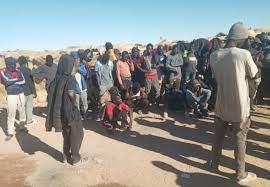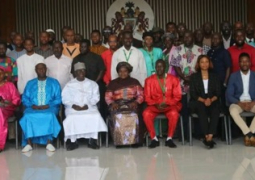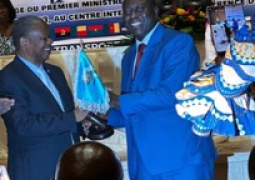
The journey described as one of the deadliest in the world is currently the informal route of several Gambian refugees, asylum seekers and economic migrants trying to reach Europe.
Friends and family members living in Europe who contacted this correspondent raising the alarm moaned that recently their loved ones are “demanding money and other methods of assistance as they failed to reach their intended destination and eventually got stranded”.
Two Gambian nationals living in the UK revealed that their younger brother and cousin who “left Banjul since last year are stuck in Mali and now working on mining fields”.
Also, huge mineral discovery in neighbouring Niger and Burkina Faso is currently attracting hundreds of other West African migrants.
Investigations further revealed that some of the Gambian migrants are also working in open-pit mining and extracting gold either for their employers or themselves.
This method of extracting mineral is a procedure considered as one of the most dangerous sectors in the industry.
Fresh report by the UN office on drugs and Crime (UNODC) also emphasised the plights of the stranded refugees and demanded transparency.
Recently, an EU, UN and AU task force met to refresh dynamic cooperation intended to enhance the protection of the migrants and their rights.
The UNHCR also intervened noting that “everyone has the right to seek asylum and find safe refuge to escape persecution and violence…”
Most of the migrants said they are “fleeing wars, dictatorships, economic hardships or searching for greener pastures”, but suddenly found themselves in unexpected situations.
Currently there is no legal definition of the term “stranded migrant”; however UNESCO noted that a “migrant may become stranded due to circumstances in the country of origin, a position of prolong detention, practical difficulties …”
Read Other Articles In Headlines



